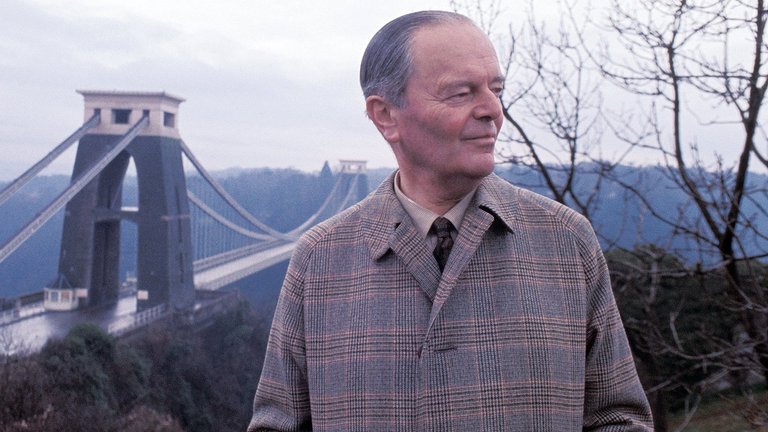
The BBC has long held the esteemed position of being regarded as the world's premier television broadcaster, particularly throughout the 20th century. This reputation can be attributed to the diversity and high quality of its programming, which, as a public service broadcaster, was less constrained by the commercial imperatives that often limit private networks. The BBC's commitment to innovation and experimentation in content has set a benchmark that many global broadcasters aspire to achieve. Among its most celebrated contributions are the documentaries, particularly those dealing with natural history. Yet, it was the art history documentary that have left a profound impact on audiences and critics alike. It was Civilisation, 1969 series which is frequently hailed as one of the most significant television events of its era.
Subtitled A Personal View by Kenneth Clark, this series was presented by Sir Kenneth Clark, who was arguably the most prominent British art historian of his time. Clark dedicated his career to making high culture accessible to a broader public, recognising early on the potential of television as a medium for this purpose. His previous experience with art-related programming, such as Is Art Necessary, which aired on ATV—the first commercial network in Britain—in 1958, provided him with valuable insights into how to engage viewers effectively.
The launch of BBC Two marked a pivotal moment in British broadcasting history, particularly as it introduced colour television to its audience. This new channel's controller, Sir David Attenborough, sought projects that could captivate viewers in ways that earlier black-and-white programmes could not. Clark's proposal for a series exploring the history of Western European civilisation from the Early Medieval period to modern times perfectly aligned with this vision, offering rich content that showcased the beauty and complexity of cultural development.
Civilisation consists of thirteen episodes, each meticulously crafted to cover distinct periods in European history. This structure allows Clark to delve into significant advancements in art, architecture, music, and philosophy. The episodes are filmed at various historical locations across Europe and North America, with Clark serving as an engaging host. Dressed impeccably in tailored suits and speaking in impeccable Queen’s English, he articulates his insights on pivotal historical events and their underlying causes.
The production quality of Civilisation is exceptional, featuring stunning colour cinematography that remains impressive even decades later. The series is complemented by an evocative musical score and occasional dramatic reenactments; for instance, during an episode focused on William Shakespeare, actors Ian Richardson, Ronald Lacey, and a young Patrick Stewart perform a scene from Hamlet.
Upon its release, Civilisation achieved remarkable success and established a template for future documentary series both in Britain and internationally. However, it has not been without its criticisms over time. Some contemporary critics argue that Clark’s approach lacks what would now be considered "politically correct" perspectives. One notable critique is his deliberate omission of Classical and non-European civilisations from his narrative. This exclusion has led some to characterise Civilisation as Eurocentric and biased; indeed, while it focuses predominantly on regions such as the British Isles, France, Germany, and Italy, it largely neglects other significant areas like the Iberian Peninsula or Russia.
Moreover, the series offers minimal engagement with modernity. This can be attributed to Clark’s apparent discomfort with modern art; he seems reluctant to venture beyond the Victorian era. Consequently, Civilisation concludes its exploration with only fleeting references to contemporary life in the 1960s.
Interestingly, Clark himself expressed dissatisfaction with the title “Civilisation.” He insisted on including the subtitle “A Personal View” to clarify that this series should not be perceived as an exhaustive account of civilisation but rather as his subjective interpretation.
In setting high standards for documentary filmmaking, Civilisation has influenced subsequent BBC series that strive for a more comprehensive and objective approach to historical narratives. Yet few have matched the profound impact of Kenneth Clark’s original work. The series not only showcased artistic achievements but also prompted discussions about cultural identity and historical interpretation—topics that remain relevant today.
RATING: 8/10 (+++)
Blog in Croatian https://draxblog.com
Blog in English https://draxreview.wordpress.com/
InLeo blog https://inleo.io/@drax.leo
Hiveonboard: https://hiveonboard.com?ref=drax
InLeo: https://inleo.io/signup?referral=drax.leo
Rising Star game: https://www.risingstargame.com?referrer=drax
1Inch: https://1inch.exchange/#/r/0x83823d8CCB74F828148258BB4457642124b1328e
BTC donations: 1EWxiMiP6iiG9rger3NuUSd6HByaxQWafG
ETH donations: 0xB305F144323b99e6f8b1d66f5D7DE78B498C32A7
BCH donations: qpvxw0jax79lhmvlgcldkzpqanf03r9cjv8y6gtmk9